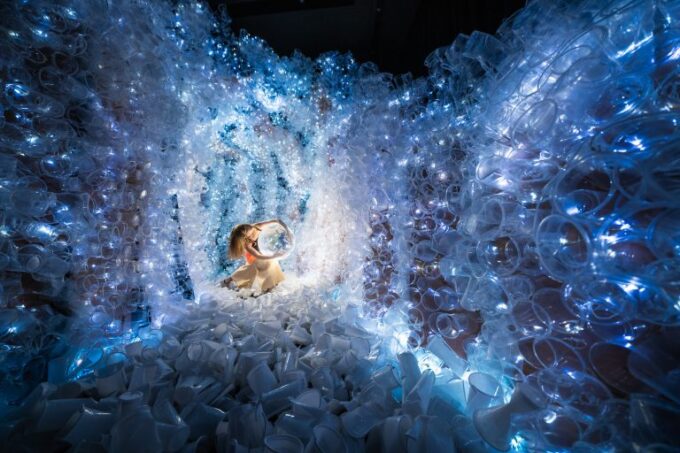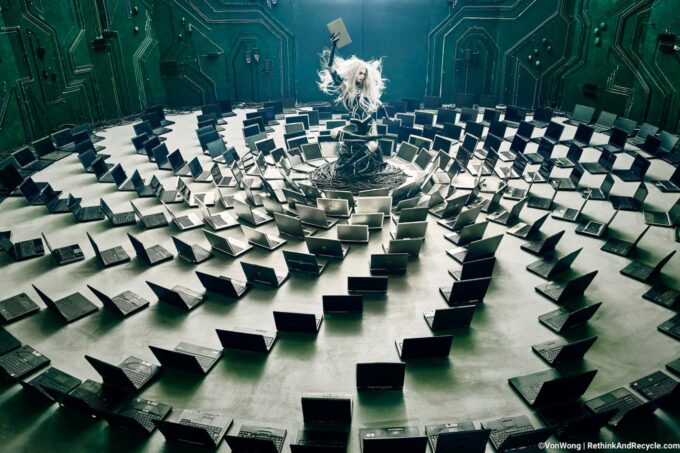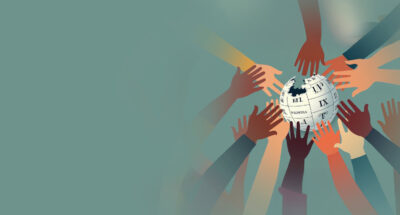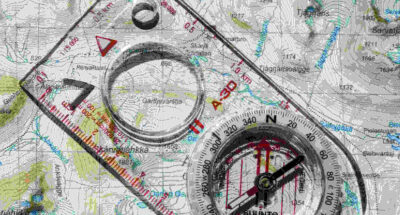
Business schools must change course to adapt to stark new realities
Business schools must cultivate leaders who see beyond profits and embrace business as a powerful force for societal good....
November 21, 2023 • by Benjamin Von Wong in Innovation
Canadian photographer, visual artist and activist Benjamin Von Wong has gained global recognition for his powerful images that carry important environmental and social messages. Here he talks about the power of art...
We may feel like we are living in a perpetual state of crisis. AI is disrupting industries, and every day we see headlines about how jobs are disappearing as AI becomes more pervasive. But I believe that we are more adept at navigating through times of crisis than we realize.
As an artist, the threat that AI poses is real, but I have faced crises throughout my career. Change is inevitable, and to survive in a cut-throat industry you have to constantly innovate and upgrade yourself. It is this thinking that has shaped my career to date.
Art is a language, a way of communicating information. It’s a powerful tool to convey messages, but it all starts with creating a sense of wonder and curiosity for what you produce. I quit my job as a hard-rock mining engineer because I was spending 80% of my time doing something I didn’t care much about and only 20% of my time doing what I loved. I felt there was more to life than this.
When I first started out, I was creating a series of beautiful photos, drawing on fantasy, but I didn’t know how to make money out of it. Once I’d started working with big brands and creating compelling headlines to drive interest in my art, I realized that it wasn’t what I wanted to do. Making money wasn’t enough – I wanted to find a way for my art to have a purpose and make an impact.
I took a sabbatical to figure that part out. Discovering that I could use fiction as a tool to tell the truth about serious issues relating to plastic pollution, I set out to create more compelling images – but I faced another crisis as I again could not make money. This in turn led me to partner with Greenpeace to tell the story of plastic waste.
We created a powerful image of truckloads of plastic in the ocean to show how much plastic is thrown into the ocean every 60 seconds and how attempts to clear the ocean of plastic were futile unless less plastic was produced. While the images were incredibly powerful, algorithms were adapting the images on platforms such as Instagram, meaning they were no longer achieving the impact we hoped for.

So, I took a year and a half to pivot once again and decided to create real-world art installations to talk about these big issues facing society. I thought that creating experiences was the right direction because experiences can’t be replaced by AI or algorithms. But then came the pandemic, and no one was buying experiences.
What I learned from all of this is that, as human beings, as leaders, as people that are living inside of a constantly changing world, we routinely face one crisis after another.
A crisis is not only a moment of fear and consideration but a moment of opportunity to decide how we are going to face this fear. What are we going to do about it? What is the opportunity that lies ahead?
Over our lifetimes we will all encounter many crossroads, and it is how we respond to these crucial moments that shape our lives. Through forging our way through crises, we improve ourselves and become better humans. It is also what helps to forge better work.
We decide the direction of our lives based on the mission and purpose that we pursue. We decide not only how we solve problems but the lens through which we see the world. These are the choices we can make.
We are producing more and more plastic each year, but less than 10% of plastics are currently being recycled – this is an issue that the next generation is going to have to face. Every single piece of plastic that has ever been produced in the history of humanity still exists on the planet today. It is this frightening statistic that motivates me in the work I do.
In 2021, I set out to create a mobile art installation to convey this message. Working with my family, I created an installation that could be taken down and rebuilt in different spaces so we could tell different aspects of the plastic story to different audiences. First, it went on display in a gallery in Paris, but this did not feel like success to me. I reflected that, as an artist and activist, the goal of art was to create change – and the way you create change is to reach the people who hold the power.

What if I could use these art installations to showcase what was possible and to drive change? I knew that the United Nations Global Plastics Treaty was coming up in Kenya in 2022 and I wondered what would happen if I could get my art installation in front of the 1,500 guests that were due to represent 183 countries at the meeting.
I set out to build a team locally to fundraise and partnered with a non-profit that collected over three tons of plastic from a local neighborhood for the installation. We built the four-story high installation depicting a tap with plastic bottles pouring out of it, and had it installed where the event was being held. The art installation greeted the participants each day for two weeks as they met to negotiate a global plastics resolution, which ended up being successfully signed.
The idea of ‘turning off the plastic tap’ became one of the central themes at the event, so much so that an image of it was used on the cover of the UN Plastics Report published soon after. The installation soon became a globally recognized symbol and as a result, it allowed me to place more of these installations in other places around the world, enabling the message to be conveyed even more broadly.
When I set out as an artist, I had no idea how powerful art could be, – but what I have learned is that art can be used to create legacy. It is the stories that we choose to pursue and tell that really matter in the end. We can’t stop the world from changing, but what we can do is tell the stories that need to be told. That it is within our power to change. Legacy is something that we have the ability to create and machines cannot take this from us. I believe that everyone can create an amazing legacy, should they choose to.
This article is inspired by a keynote session at IMD’s Orchestrating Winning Performance in Singapore, which brings together executives from diverse sectors and geographies for a week of intense learning and sharing with IMD faculty and business experts.

Visual artist and photographer
Von Wong is a Canadian artist who has gained recognition for creating powerful images that carry important environmental and social messages, combining fantasy, surrealism, and environmental themes. Some of his most notable projects include underwater photoshoots with models among shipwrecks, epic portraits of people in extreme and challenging environments, and artistic collaborations aimed at raising awareness about plastic pollution and electronic waste. In 2021, Von Wong created the #TurnOffThePlasticTap (also known as the #GiantPlasticTap) project to bring awareness to the volume of plastics being dumped into our oceans. The following year, he was invited to recreate the tap in Kenya for the United Nations Environmental Assembly where UN member states decided to adopt a landmark mandate to develop a legally binding global Plastics Treaty with a full life cycle approach.

April 8, 2025 • by Andrew J. Hoffman in Purpose
Business schools must cultivate leaders who see beyond profits and embrace business as a powerful force for societal good....

February 25, 2025 • by David Wagner in Purpose
Introducing ‘community-centricity’ – an inspirational idea for leaders and organizations to focus on customers to include economic and societal impact....
 Audio available
Audio available
February 11, 2025 • by Nicola Pless , Thomas Maak in Purpose
Understanding your leadership style and how to adopt or blend different approaches will improve your ability to respond to intensifying challenges and stakeholder expectations....
 Audio available
Audio available
January 29, 2025 • by Judy Kent, Alyson Meister in Purpose
Taking up a new leadership post can mean a dramatic shift in the way others see you – and how you define yourself. It is vital to learn how to separate your...
Explore first person business intelligence from top minds curated for a global executive audience